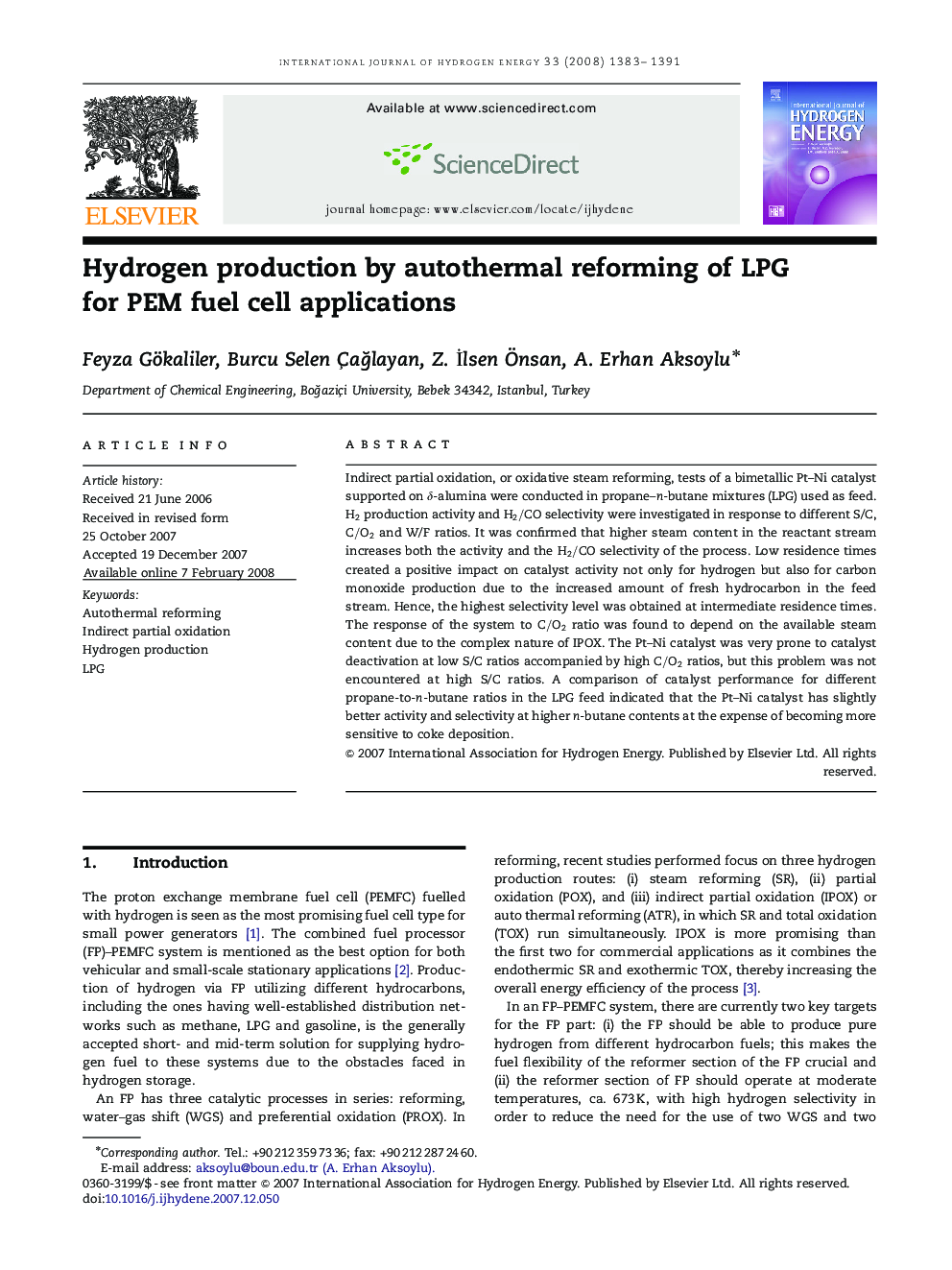| Article ID | Journal | Published Year | Pages | File Type |
|---|---|---|---|---|
| 1274715 | International Journal of Hydrogen Energy | 2008 | 9 Pages |
Indirect partial oxidation, or oxidative steam reforming, tests of a bimetallic Pt–Ni catalyst supported on δδ-alumina were conducted in propane–n -butane mixtures (LPG) used as feed. H2H2 production activity and H2/COH2/CO selectivity were investigated in response to different S/C, C/O2C/O2 and W/F ratios. It was confirmed that higher steam content in the reactant stream increases both the activity and the H2/COH2/CO selectivity of the process. Low residence times created a positive impact on catalyst activity not only for hydrogen but also for carbon monoxide production due to the increased amount of fresh hydrocarbon in the feed stream. Hence, the highest selectivity level was obtained at intermediate residence times. The response of the system to C/O2C/O2 ratio was found to depend on the available steam content due to the complex nature of IPOX. The Pt–Ni catalyst was very prone to catalyst deactivation at low S/C ratios accompanied by high C/O2C/O2 ratios, but this problem was not encountered at high S/C ratios. A comparison of catalyst performance for different propane-to-n-butane ratios in the LPG feed indicated that the Pt–Ni catalyst has slightly better activity and selectivity at higher n-butane contents at the expense of becoming more sensitive to coke deposition.
